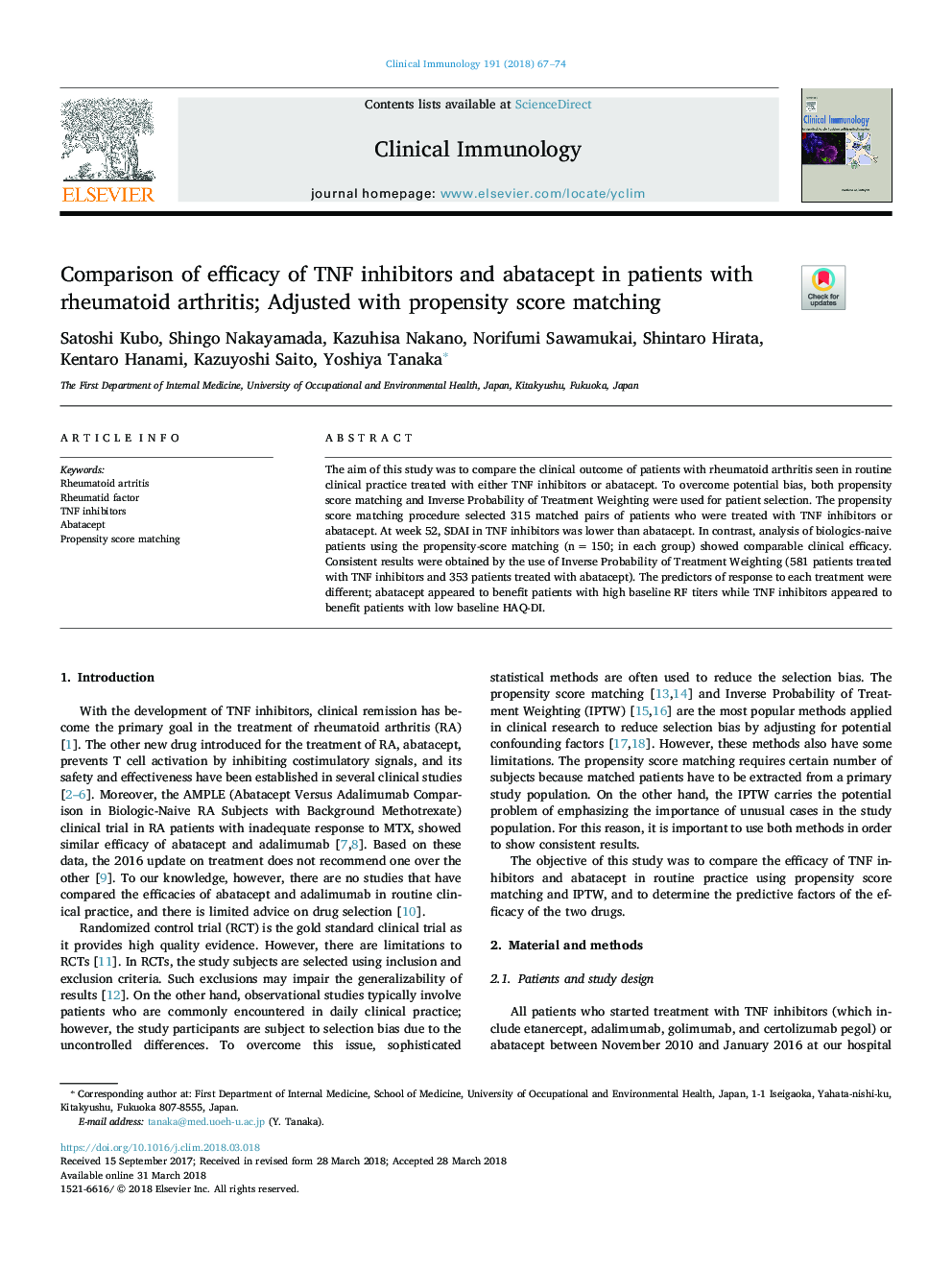| Article ID | Journal | Published Year | Pages | File Type |
|---|---|---|---|---|
| 8721303 | Clinical Immunology | 2018 | 8 Pages |
Abstract
The aim of this study was to compare the clinical outcome of patients with rheumatoid arthritis seen in routine clinical practice treated with either TNF inhibitors or abatacept. To overcome potential bias, both propensity score matching and Inverse Probability of Treatment Weighting were used for patient selection. The propensity score matching procedure selected 315 matched pairs of patients who were treated with TNF inhibitors or abatacept. At week 52, SDAI in TNF inhibitors was lower than abatacept. In contrast, analysis of biologics-naive patients using the propensity-score matching (nâ¯=â¯150; in each group) showed comparable clinical efficacy. Consistent results were obtained by the use of Inverse Probability of Treatment Weighting (581 patients treated with TNF inhibitors and 353 patients treated with abatacept). The predictors of response to each treatment were different; abatacept appeared to benefit patients with high baseline RF titers while TNF inhibitors appeared to benefit patients with low baseline HAQ-DI.
Related Topics
Life Sciences
Immunology and Microbiology
Immunology
Authors
Satoshi Kubo, Shingo Nakayamada, Kazuhisa Nakano, Norifumi Sawamukai, Shintaro Hirata, Kentaro Hanami, Kazuyoshi Saito, Yoshiya Tanaka,
